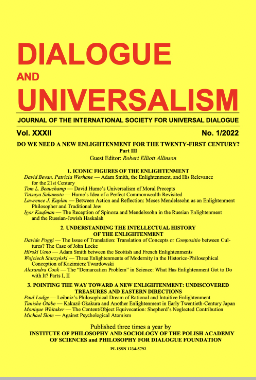ART AND HUMANISM IN THE WORK OF TZVETAN TODOROV
ART AND HUMANISM IN THE WORK OF TZVETAN TODOROV
Author(s): Mihaela Czobor-LuppSubject(s): Philosophy, History of Philosophy, Social Philosophy
Published by: Instytut Filozofii i Socjologii Polskiej Akademii Nauk i Fundacja Filozofia na Rzecz Dialogu
Keywords: totalitarian frame of mind; modern art; artistic gaze; quotidian humanism; Enlightenment; universalism
Summary/Abstract: In reaction to what he defines as the modern (anti-humanistic) totalitarian frame of mind, characterized by scientism, Manicheism, and aestheticism, the French critic and historian of ideas, Tzvetan Todorov engages in an ambitious project of rethinking humanism. A (post-Romantic) view of art that retains its representational role, its intersubjective and truth-disclosive power, and that does not betray the humanism that marked the debut of modernity, plays a central role in this enterprise.I argue in this paper that, through his interpretation of the works of different modern painters, Todorov reconstructs an artistic gaze, a way of looking at the world, that can nourish a humanistic sensibility in modern societies. This humanistic artistic gaze pluralizes the representational space of the human without failing to develop a common narrative about humanity. In tune with the values of what I call quotidian humanism, it is a gaze that can redeem the meaning and the sacred dimension of our most elemental quotidian gestures and activities. More than anything else, it is a gaze that refuses to reduce the richness and even the ambiguity of an individual’s presence and life to an idea or a doctrine and that chooses to see other human beings not with a moralizing eye, but with love, even kindness, for their complex and concrete humanity.
Journal: Dialogue and Universalism
- Issue Year: 2024
- Issue No: 2
- Page Range: 279-302
- Page Count: 24
- Language: English
- Content File-PDF

